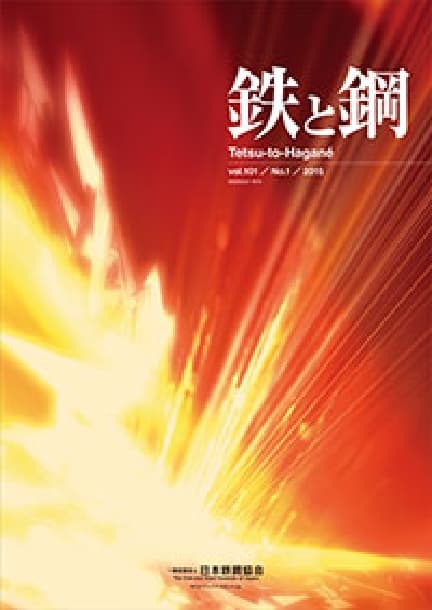An influence of carbon content on the strength and toughness of Nb-Ti-B steel, which contains 1.5% Mn or 1.7% Mn finish-rolled at 720°C after heating at 1050°C then air-cooled or acceleratedly-cooled, was studied.
The strength of air-cooled plates after the controlled-rolling increases as carbon content increases at C=0.0010.015%, because ferrite becomes fine and TiC, Nb (C, N) precipitate, then decreases at C=0.0150.048%, because microstructure changes from fine-ferrite to coarse-ferrite+pearlite, then increases again at C=0.0480.170%, because the amount of pearlite increases. The change of microstructure and strength decreasing at C=0.0150.048% results from a decrease of the amount of free boron and free niobium.
The toughness decreases at C=0.0150.048%, because the number of separation decreases by a decrease of austenite/ferrite transformation temperature.
The strength and toughness increase, because ferrite becomes fine and pearlite changes to bainite by an increase of manganese.
The strength of acceleratedly-cooled plates after the controlled-rolling increases monotonously with an increase of carbon. Because the microstructure becomes fine, and the secondary phase changes from pearlite to martensite by the increase of cooling rate.










